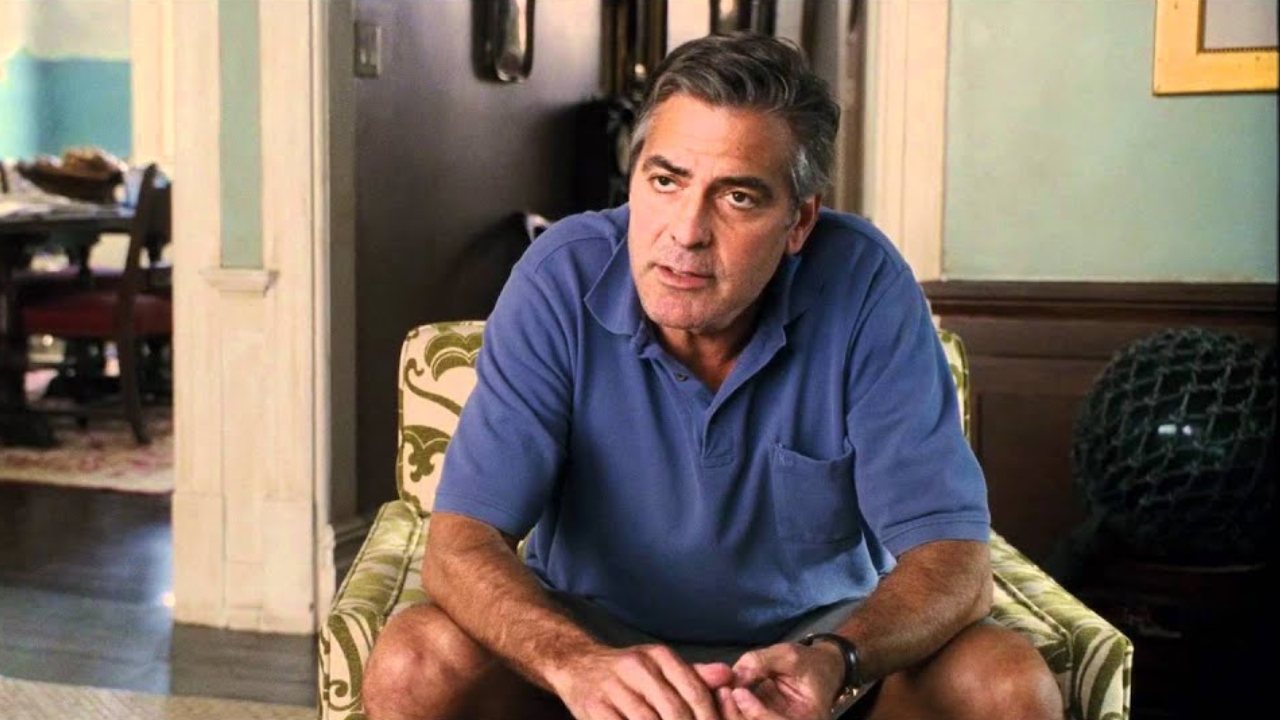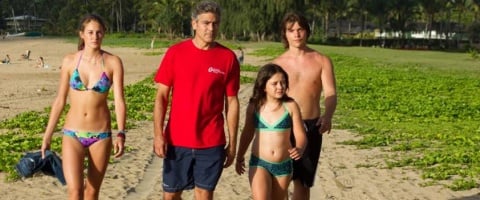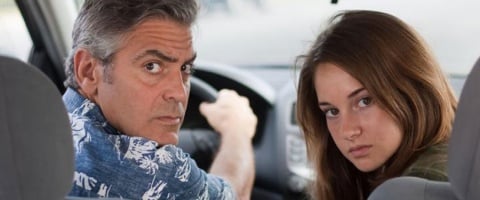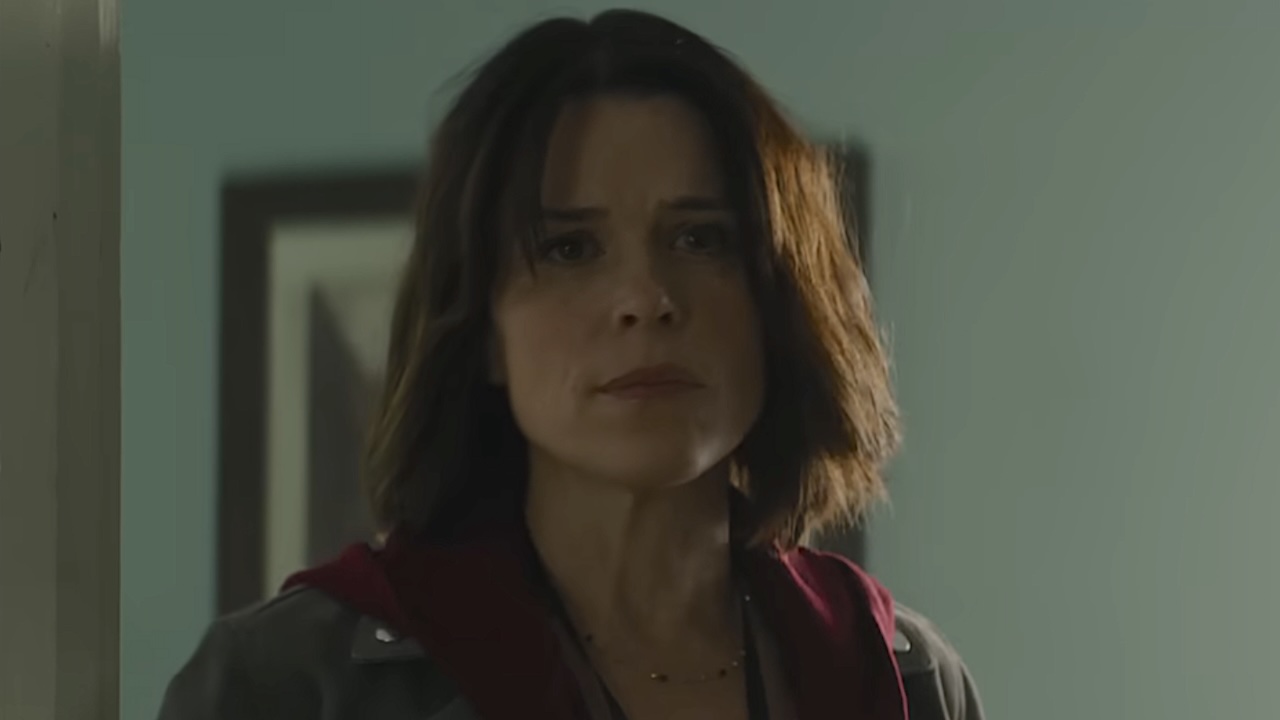The Descendants Director Alexander Payne On Casting Clooney And Hawaii Locations

Your Daily Blend of Entertainment News
You are now subscribed
Your newsletter sign-up was successful
Alexander Payne doesn't see any significance in the fact that he frequently casts movie stars-- Matthew Broderick in Election, Jack Nicholson in About Schmidt, now George Clooney in The Descendants-- in roles that contrast with their public personas. The way he explains it, he couldn't care less about commenting on their starpower-- it's all in whether or not they're right for the role. I'm not sure I believe him. But when you talk to Alexander Payne, you've no choice but to be caught up fully in the river of his thought, which can turn unexpectedly from talking about voiceover in Election to the first 40 minutes of Casino, or in him asking you where you grew up in the middle of a conversation about Hawaii.
I didn't grow up in Hawaii, and neither did Payne, which is one of the reasons he said he was "scared to death" that he wouldn't get the place right when shooting The Descendants, an adaptation of Kaui Hart Hemmings's novel about a man (played by Clooney) who learns his wife was having an affair only after she lands in a coma. That's just one of the many things plaguing Matt King, a descendant from some of the first white settlers in Hawaii-- his relatives want him to sell a huge tract of land, his daughters are both angry at him for various reasons, and he's decided to hunt down the man his wife was having an affair with, even as the wife lays unconscious in a hospital bed.
As you might guess from the glowing reviews, Payne pulled everything off in The Descendants marvelously, and a few weeks ago I talked to him about what it took to pull that off, from the long period he and his co-writer Jim Taylor spent working on this and other projects after Sideways, his commitment to shooting real locations for what they are, casting Clooney, and how The Descendants might hopefully prove that there's still room for a national cinema about grown-ups (when discussing the relative lack of these kinds of movies, he makes an exception for The Social Network-- "Thank God.") Take a look at the interview below, and please do yourself and American cinema a favor by seeing The Descendants this weekend.

When you were doing press for Sideways, you seemed like you knew what you were going to do next. But then none of those projects wound up being The Descendants.
Well, life is what happens when you're planning other things.
Was there any thing specific that made this one come to the fore? Timing, money?
It was timing, really. About '06 Jim [Taylor, his longtime co-writer] and I started writing a script that I have yet to direct, and we spent about two and a half years on this script. We did a couple of script doctor jobs in there too for cash, and I produced a movie or two. I directed Paris Je'Taime, that was in late '05. And then Jim and I worked on the script for a couple of years, then I was so eager to direct, because we didn't know that scripts was going to take so long, so I took a pilot [Hung], I spent 6 months doing a TV pilot. Then by July of 09 I started work on The Descendants.
Your Daily Blend of Entertainment News
So it feels like a long time to us…
Yeah, for the release it's a seven-year gap. For me it was a four-year gap. I finished work in early 05 on Sideways, promoting it, then I started work on this in 09 .I haven't stopped being busy, but sadly it hasn't been the main reason I got into film, which is to direct features.
The Hawaii locations in The Descendants are beautiful, like Napa Valley in Sideways, but you're looking at it in a way that people don't normally. Do you specifically like digging underneath the surface sheen in a place?
Not specifically. I like representing faithfully the place in which the story is set. I actually had not seen much Hawaii in films, at least not in a real movie with a real story set there-- not a surf movie. My interest also in The Descendants wasn't Hawaii in general, but it was more Honolulu in particular. I like cities, and I had never seen Honolulu in movie. Some of it's pretty, I guess some of the photography in the movie is pretty in terms of what it's presenting. But the opening montage is consciously to say, OK, we're in Hawaii, we're in Honolulu, but pulling the screen back, seeing street life. I took a cue from his line, which I stole from the book, "Paradise can go fuck itself."
You've got the voiceover in the beginning, and then it distinctly goes away. When you were writing the script did you know you had to get rid of it?
The movie has a lot of voiceover in the first reel or two, and a lot of it is exposition that the audience just has to know. It's slightly voiceover heavy for me. I like voiceover in films, and most of my films have been voiceover films. But I knew it was going to be exposition heavy, and the audience was just going to have to sit through it, because they've got to be frontloaded with it to understand the rest of the story. Also it has the function of anchoring us in George Clooney's character, so we understand it's his story.
I don't believe in any rules, but standard screenwriting would say, "Well, if you're going to have voiceover at the beginning of the film, yo uphold have it at the end of the film to bookend things. You can't just have it and then have it go away." But you know, I am 50 years old now. I am going to use whatever cinematic technique I need at whatever point I need it to communicate whatever I need to do as efficiently as possible. And in that case it was having a lot of voiceover at the beginning and then having it taper away.

George Clooney comes with a certain George Clooney-ness to him. And you've played with starpower in other movies, like with Jack Nicholson in About Schmidt or Matthew Broderick in Election. It seems like it can't be a coincidence that you cast these actors and enjoy playing with their starpower. Is it something you think about?
No. When I go to cast I don't think about their stardom, I think about, is this person right for the part? Can he or she do it? Yeah, that's all I think about.
But when something like About Schmidt comes out and it's just Jack Nicholson's face on the poster without the sunglasses, people do see it that way and look at the movie through that lens.
Yeah, and all the reviews say "Jack Nicholson has never been with a woman his own age." "Jack Nicholson doesn't raise his eyebrows." And I say, what about the movie? What did you think about this movie in and of itself, in between the beginning and the end.
Well you're going to hear it again with George Clooney in this film.
Well some people say he's never been better, or he's a believable family man. I'm all happy about that. They're saying, some of these early reviews I've read say they believe him, or they're aware it's George Clooney for 20 minutes then forget and see it as Matt King. Then he and I have done our jobs. And he's a wonderful actor. I've worked with wonderful actors. Nicholson is a star, I don't give a shit-- he's a wonderful actor.
What made George Clooney Matt King for you?
He was the first idea of the novelist, Kaui Hemmings. When I started the adaptation I called her up and asked her a bunch of questions, and said "By the way, do you think of anyone you could see paying Matt King?" She said, "Yeah, George Clooney." I said, "That perfect, let's get him." He was my first and only choice.
Is it hard to get him?
I'm sure for many filmmakers it is, and maybe for me it is too, but I let him know through his agent that i was interested, and I had dinner with him in September of 09, and said I'm going to come at your with a script in two months. I got it to him in November, and we were shooting in March.

The book is about white settlers of Hawaii who had families with the native people of Hawaii. And you're not from Hawaii, you're not native Hawaiian, and I wonder if you felt kind f like the white guy coming to this island to tell their story. Does some of that strained cultural history filter into you?
Totally! I was scared to death through the whole process that I wasn't going to get it right. I spent a lot of time researching history, culture, mores, everything ,asking everybody questions. I want dot shake hands with everyone on the whole island, kin the whole island chain. I heard oh, it's so leisurely with the pace, but I'm really curious to see how it's going to play in Honolulu when I premiere it there this Sunday. I used 100% pre-existing Hawaiian music, and there's a certain leisure to its pacing. That was opening myself to what I was seeing and learning and feeling out there.
You come in to a shoot thinking of the movie you want to put together. When you left did you have a different feeling about it, having spent all that time in Honolulu?
I never start any movie with an a priori notion of how the movie should be. I usually don't have actors in mind, I have to audition. Judy Greer, I didn't know who the hell she was, she came in on an audition. I had seen 13 Going on 30, because my friend Gary Winick had directed it, and I kind of remembered who she was. Matthew Lillard, I didn't know who the hell the guy was-- I hadn't seen Scooby Doo, and I had seen Scream a million years ago and don't remember it. So there's that. I let the gods present me things. And similarly with the locations, I just need to go out and see what's out there. I'm making a fiction film, but with kind of the disposition of the documentarian. I want to see what's in the world and document that and show that.
And you've always done it that way?
It's evolved more. Citien Ruth the one thing I don't like about it-- and maybe it's OK in that case-- it's kind of Anytown ,USA. And then with Election I said, no, this is specifically Omaha. And then with Schmidt even more. Then by Sideways I was really very consciously doing it, and having characters in the foreground and accurate changing landscape in the background. It was reinforced in Paris Je'Taime, because in 6 minutes it shows all over that arrondissement. This one gets even more into it using the interstitial shots commenting on the action, the narrative, the shifts happening in the protagonist.
You were talking around the time of Sideways about the need for an American national cinema.
I still believe in in 100%.
And aside from doing what you do, shooting in locations, how do we get that aside from everyone shooting things where they're supposed to be?
No it doesn't have to be that, it could be in a room or a stage. So long as we're making human stories about a people. That's what I want. I don't want all of American cinema to be big cartoons that are just made to be digested by the entire world. We need American movies about Americans, French movies about French, Iranian-- have you see A Separation? That's a film. It's about that, and knowing that the more specific, the more universal. They're just not making too many adult dramas anymore. Last year was a pretty good year for American cinema. The Kids Are All Right, which cost almost nothing. We had The Social Network, thank God, but that's by a powerhouse director. The King's Speech, it is an English language film, and what a wonderful film, but it's an English film.
So you don't feel despair?
I don't feel despair because I am able to make the films i want to make, and that gives me hope. But I really think if I get to do it, why can't other people. I'm not trying to be Gandhi here, but whatever success The Descendants might have, its greatest success would be if it encourages other filmmakers and financiers to make more human films, and demonstrate that there is a hungry audience for these films, and that audience is not being addressed.
Staff Writer at CinemaBlend

